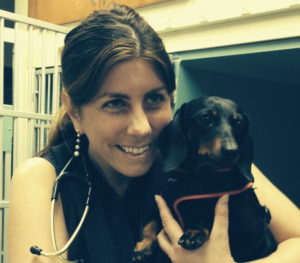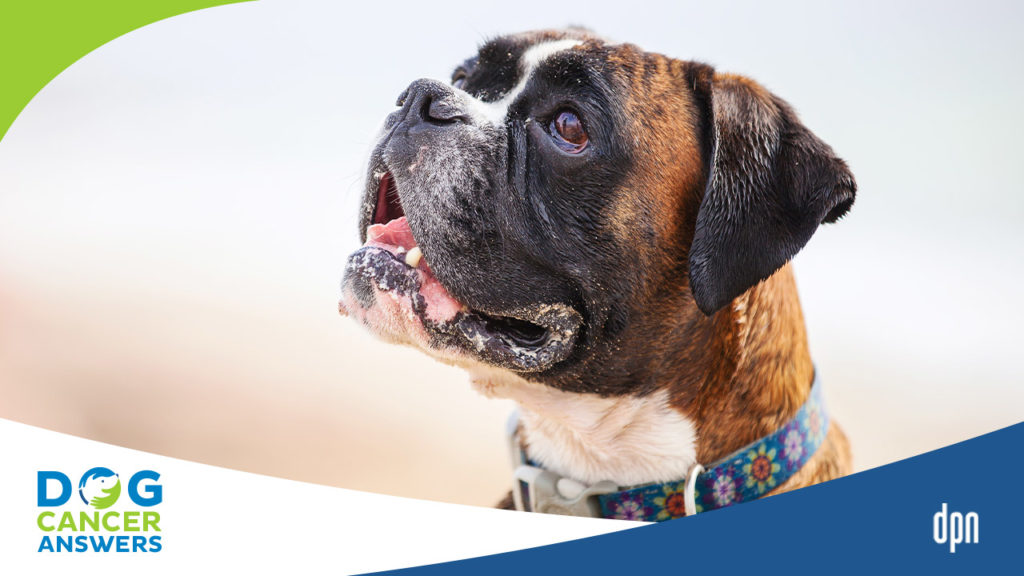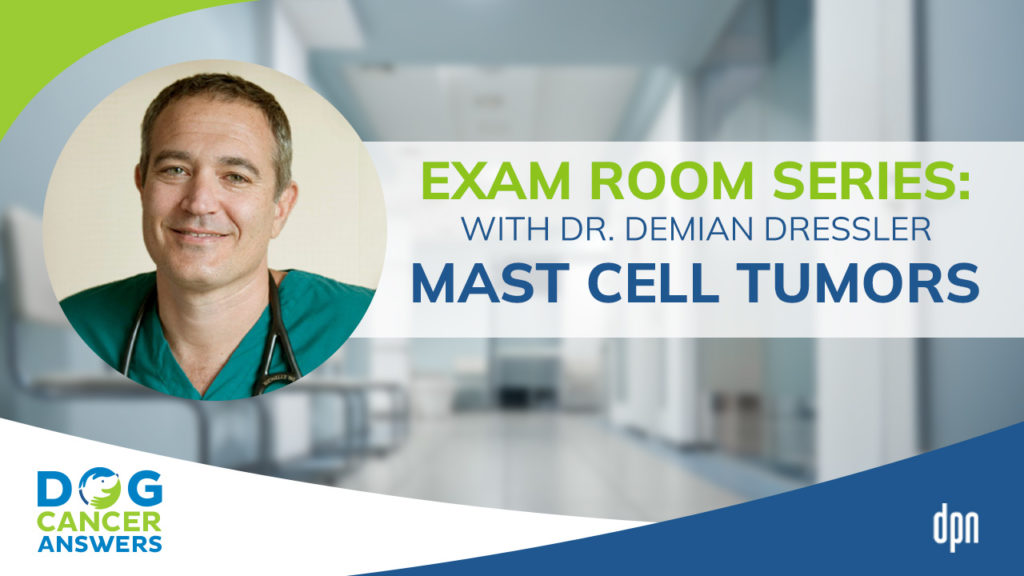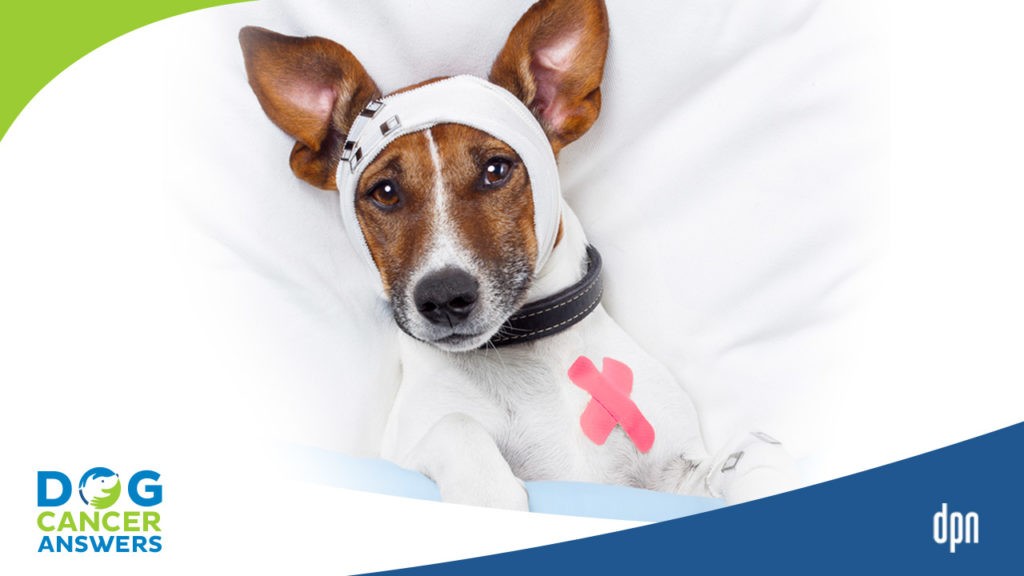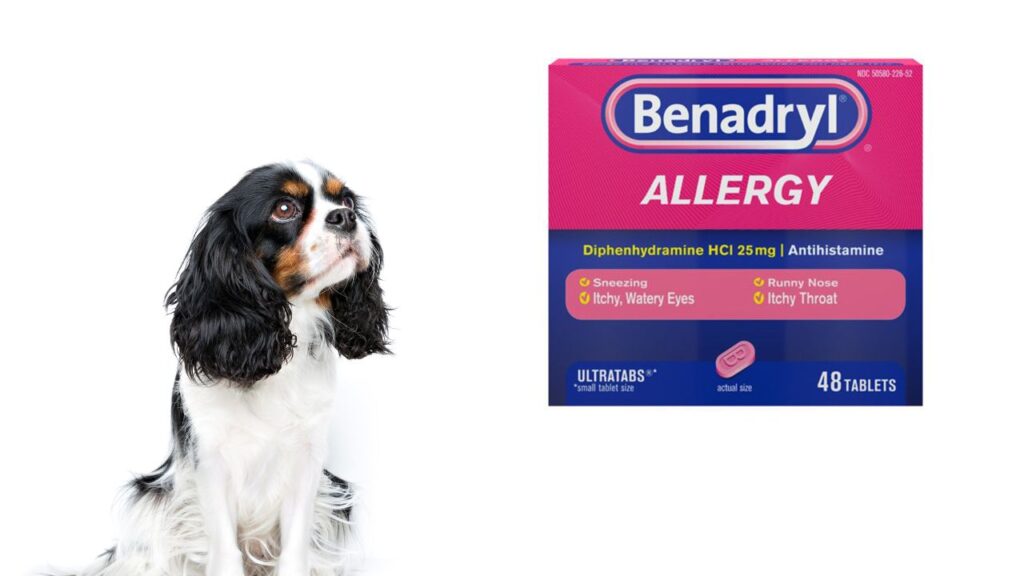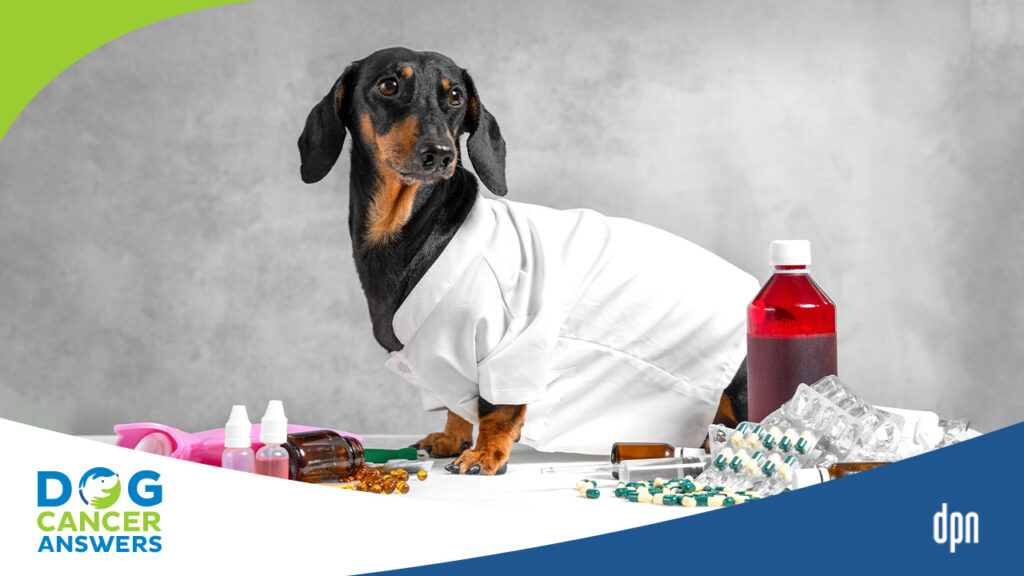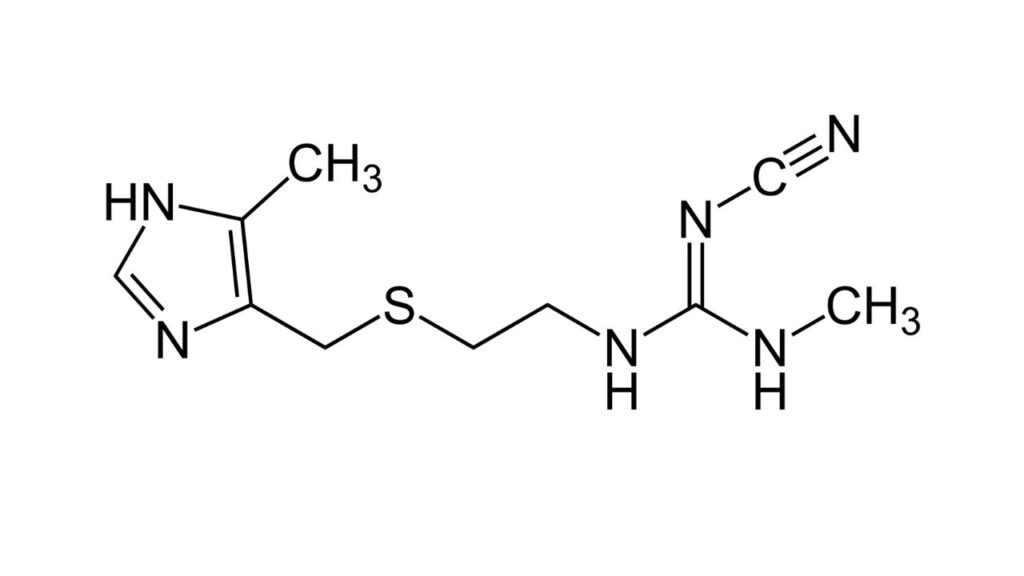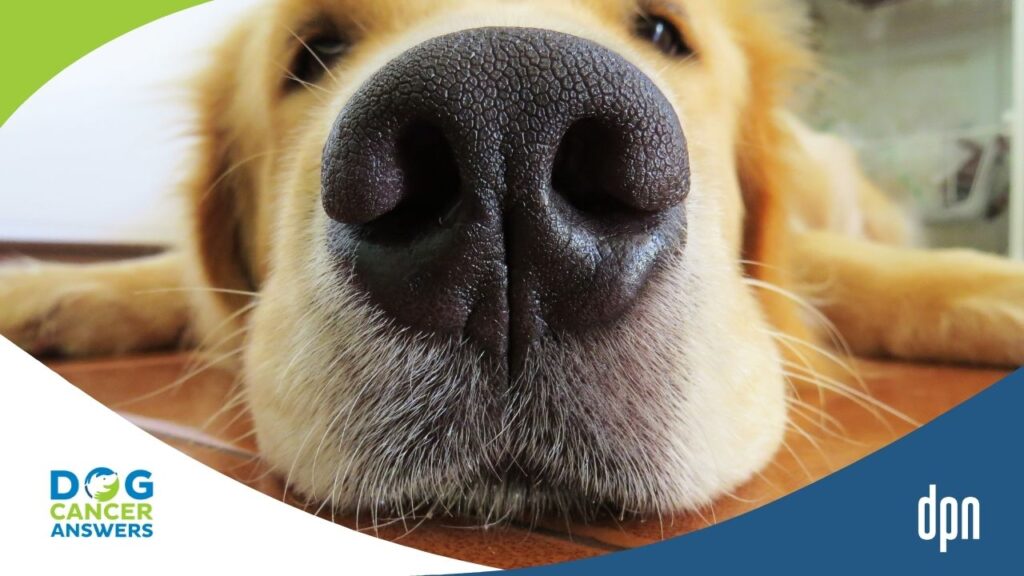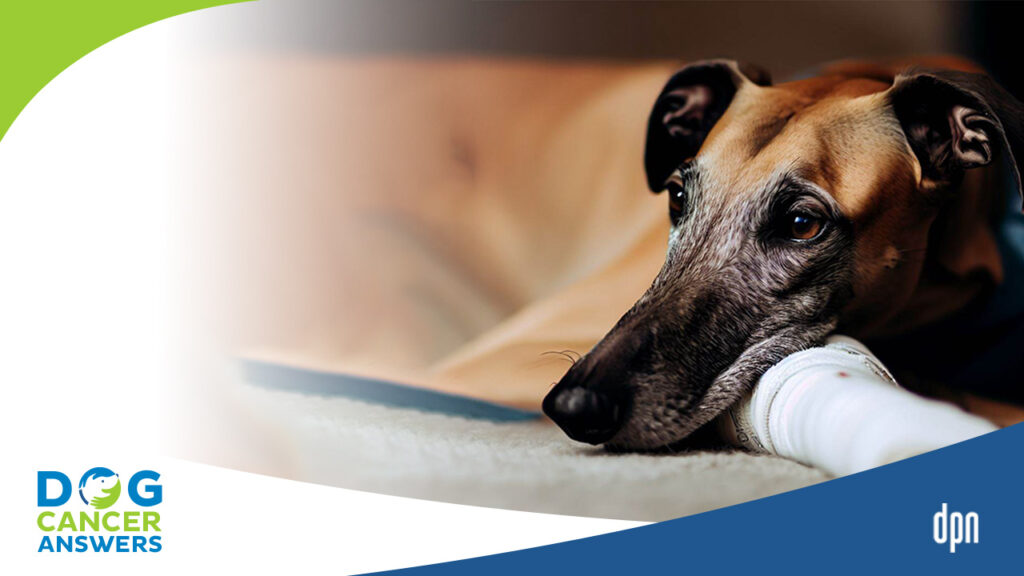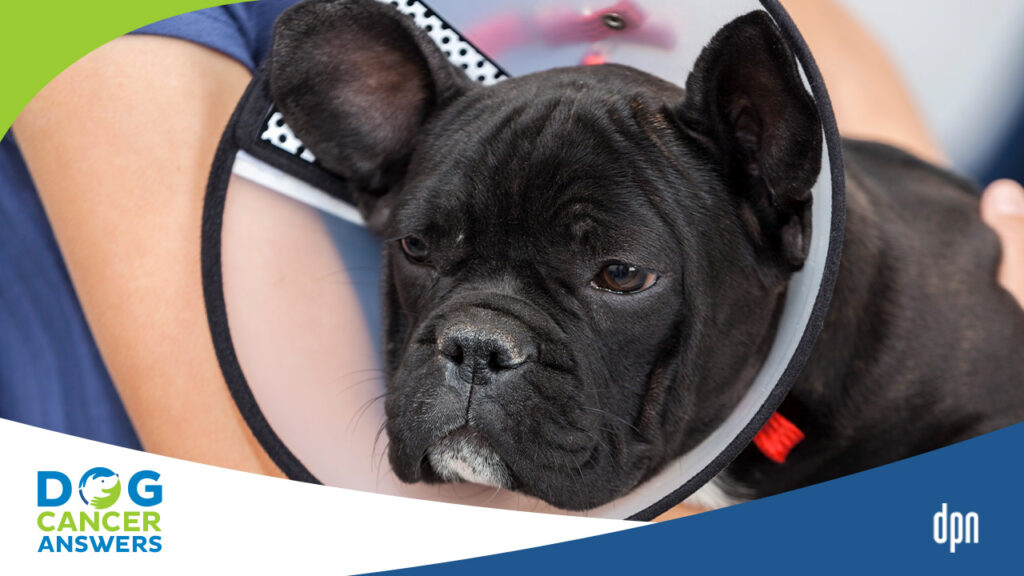EPISODE 209 | RELEASED March 27, 2023
All About Degranulation Events | Dr. Brooke Britton
Your dog is restless and anxious, and suddenly chewing and scratching at his red, irritated mast cell tumor. Is he having a degranulation event?
SHOW NOTES
Mast cell tumors are fairly common in dogs. These tumors develop from mast cells, a type of immune cell that contains little packets or granules of histamine and other chemicals. Normally, these granules release in response to something like an insect bite. But when mast cells turn cancerous, the histamine release can quickly get out of control. This is called a degranulation event.
Veterinary oncologist Brooke Britton joins us once again to explain why dogs get degranulation events, how to recognize that one is happening, and what can be done to help your dog. The good news? Medicine cabinet standbys like Benadryl can provide relief from the awful itching and irritation.
Listen in to learn more, including the role that allergies may play in mast cell tumors.
[00:00:00] >> Dr. Brooke Britton: All of those little molecules, in those little packets or granules, when they get released, they can cause the body to have reactions. A lot of times there’s more swelling, more redness or pain, sometimes itchiness at the site. And sometimes they can cause more severe distant reactions.
[00:00:22] >> Announcer: Welcome to Dog Cancer Answers, where we help you help your dog with cancer.
[00:00:28] >> Molly Jacobson: Hello, friend. I’m Molly Jacobson, and today on Dog Cancer Answers, we’re taking a close look at degranulation events, something that happens to dogs with mast cell tumors on occasion. It’s a massive release of histamines that causes a lot of inflammation and often discomfort for your dog. There are things you can do to help your pup. And joining us to explain what degranulation events are and how to treat them is veterinary oncologist, Dr. Brooke Britton.
Dr. Brooke Britton, thank you so much for joining us today.
[00:01:01] >> Dr. Brooke Britton: Thank you for having me.
[00:01:02] >> Molly Jacobson: So today we wanna talk about degranulation events with you.
[00:01:05] >> Dr. Brooke Britton: Yes.
[00:01:06] >> Molly Jacobson: This is something that happens and people get shocked, and so I think it’s gonna be just a really useful episode for our listeners who have to deal with this whole concept. So why don’t you tell me, what’s a degranulation event? What happens?
[00:01:20] >> Dr. Brooke Britton: The most common context that people talk about degranulation events is usually within the context of mast cell tumors, which are a very common skin tumor in dogs, the most common skin tumor in dogs actually, a little bit less common in cats, but we still see many of them. And degranulation happens when the mast cells release their contents. They have little granules inside of their cytoplasm in the inside of the cell, and those granules contain a multitude of different substances.
They contain histamine, they contain heparin, and other inflammatory mediators. And when they release all of these things, that can cause the side effects that people might see with a degranulation event. And there are many potential sequela or effects of degranulation. And um, we can certainly go into those and talk all about those.
[00:02:15] >> Molly Jacobson: Yeah. But first I wanna talk just a little bit about what a mast cell is in the first place, because you mentioned a couple of words that I wanna make sure we all understand. You said granules? And then, you also mentioned lots of different kinds of side effects that can happen, and that’s partly ’cause mast cells occur all over the body, right? They don’t just live in one place. Talk a little bit about mast cells themselves.
[00:02:38] >> Dr. Brooke Britton: Well, in their normal state, they’re an immune system cell and they usually are active when we have inflammation, but specifically hypersensitivity type reactions. So if you are exposed to an allergen or that type of stimulus, or you are bitten by something –
the classic example would be if you’re bitten by a mosquito or another type of bug, or you’re stung, you know, by a bee, you have immune system cells that go to check out that area and that stimulus and mast cells are a part of that reaction. And the kind of bump that you get that’s a little painful or itchy or red or swollen, many times mast cells are participating in making that reaction.
So in the normal body, in people and in other species like dogs and cats, that reaction is a temporary and fairly localized reaction, so it’s confined to that area where the stimulus happened, and then it goes away over time. Usually not a, not a long period of time, hours or a day or two. When we have mast cell tumors, those cells are mast cells but they’re abnormal because they’ve undergone a cancerous change. They can degranulate or release those granule contents that are inside the cell inappropriately.
And so the granules are like little tiny packets, little containers that have all of these substances in them, and they can be released at times when it’s not appropriate, just when a dog or cat is lying around doing nothing, or maybe if they scratch or itch or chew or lick at the area, they can have degranulation as well. So it can really happen randomly at any time or if the tumor is poked or prodded.
And oftentimes the degranulation from cancerous mast cells is more significant, more prolonged, more severe. That’s not always the case, but that’s certainly kind of a, envision bringing a gun to a knife fight. Degranulation with mast cell tumor can be almost an overreaction or what you would see from a normal immune system reaction with normal mast cells, it’s to the nth degree with that. And the side effects that can happen are all of those little molecules in those little packets or granules, when they get released, they can cause the body to have reactions.
A lot of times there’s more swelling or redness or pain, sometimes itchiness at the site, and sometimes they can cause more severe distant reactions because the amount of those substances that released can be so significant that you start to see chain events happening in the body to cause more severe things like stomach ulcers or other changes in blood pressure that can be, you know, severe or life-threatening.
So it really depends on the size of the tumor and the nature of the degranulation. The more dramatic the degranulation is, the more severe the side effects can be, and the more ill the animal can feel.
[00:05:43] >> Molly Jacobson: Okay. So am I understanding correctly that degranulation actually happens in a normal mast cell, but just a little bit for one specific purpose at one specific time in response to an actual threat, but degranulation in a mast cell tumor can happen for any number of reasons, no reason at all. And it’s just suddenly there’s a cascade of these little histamines and heparin and all of the other things that it, are in those granules, into the bloodstream, and that’s why we can get really weird side effects that don’t necessarily seem related directly to the tumor itself.
[00:06:22] >> Dr. Brooke Britton: That’s right.
[00:06:23] >> Molly Jacobson: Okay.
[00:06:23] >> Dr. Brooke Britton: Sometimes you get swelling and bruising and side effects that are kind of a little bit further away from where the actual, what we call the primary tumor or the main tumor, from where that is. Oftentimes you’ll see those effects around the tumor and the dog or cat may feel well or sick depending upon how localized the reaction stays, but sometimes you see the effects of degranulation further away in the body, kind of further from the primary tumor. That’s exactly right.
[00:06:52] >> Molly Jacobson: Okay. I actually have a real allergy to mosquito venom. So if I get more than one, let’s say mosquito bite, I will need to take a Benadryl just to calm the immune system down.
[00:07:07] >> Dr. Brooke Britton: That’s right.
[00:07:08] >> Molly Jacobson: There’s this panicky feeling that I get when I feel all of my tissues sort of responding. Would you say that that’s likely the mast cells de granulating as they try to fight this venom that they’re very concerned about?
[00:07:22] >> Dr. Brooke Britton: Yes.
[00:07:22] >> Molly Jacobson: Is that likely part of what’s going on?
[00:07:24] >> Dr. Brooke Britton: Yeah, I think that’s exactly what’s going on, at least in part. Multiple different things happen in response to that type of stimulus in the body, but absolutely, I’m sure a lot of that is the mast cell reaction that you’re reporting just based on your symptoms.
[00:07:39] >> Molly Jacobson: Okay.
[00:07:40] >> Dr. Brooke Britton: And in part, when you take a Benadryl and you likely feel a bit better, that’s exactly a part of how we treat degranulation when this happens, especially in dogs. You know, Benadryl is fairly well tolerated and it’s a fairly benign thing to give, and when we think there’s a more significant degranulation, Benadryl is an antihistamine, and histamine is one of the main components released during degranulation, so it counteracts those effects and many times it can make them feel better if they’ve had a more significant degranulation. Then if there’s swelling in the body or at the tumor site it can also help to decrease the swelling or the puffiness of that area.
[00:08:22] >> Molly Jacobson: Am I wrong to assume that dogs might be feeling something the way that I feel when I have that allergic reaction where it feels like my whole body is responding to it? Not every time, of course, but what are the things that dogs are feeling on a sensation level? Not necessarily an emotional level. I know for me, I panic a little bit. It’s because I feel like I’m under attack. It feels like there’s something very wrong and in a way, there is.
[00:08:50] >> Dr. Brooke Britton: Exactly. It’s a really good question. I think we can never know exactly how a dog may feel-
[00:08:56] >> Molly Jacobson: Right.
[00:08:57] >> Dr. Brooke Britton: -you know, when they have an event like this. But we assume that it’s very similar to what people experience and the things that we might notice in a dog that has a more significant degranulation, they may be a bit restless or not be able to get comfortable. They may not be able to sleep through the night. They may have attention seeking behavior or what we would characterize as neediness.
So a lot of times we can see these subtle behavioral changes in them, and it’s hard to know exactly what they’re thinking or feeling at that moment, but we think that’s probably part of it, that they experience those types of feelings too. They just can’t tell us, in such a way.
[00:09:34] >> Molly Jacobson: Right. That’s the central problem of veterinary medicine for you, isn’t it? That your patients cannot tell you.
[00:09:40] >> Dr. Brooke Britton: Exactly. Welcome to veterinary medicine.
[00:09:43] >> Molly Jacobson: Right.
[00:09:43] >> Dr. Brooke Britton: No one can tell us. Yes.
[00:09:45] >> Molly Jacobson: Nobody can tell you what’s wrong. It’s so incredible what veterinarians do. So what are they likely to feel on a physical basis? Do they get an upset stomach? Do they feel itchy? Like what happens on that level?
[00:10:02] >> Dr. Brooke Britton: They can. Sometimes the primary tumor or tumors can get very itchy, so they may lick or chew at the area or scratch. They may rub along furniture or roll around on the rug trying to itch that area. Sometimes they can get an upset stomach. And we think that in many dogs, um, and we know this because there were studies down on dogs who passed away and had mast cell tumors, and they looked at their stomachs to see whether or not they had evidence of a stomach ulcer, and many of the dogs did. So.
[00:10:34] >> Molly Jacobson: Oh.
[00:10:35] >> Dr. Brooke Britton: We think that many dogs may have what’s called subclinical ulceration. We don’t know for sure that they have a stomach ulcer, but we may see indications on blood work that that’s the case, or they may just change their habits around eating time. They may not want to eat as much or maybe change their food preferences, or they may seem nauseous after they eat food.
Sometimes we can see more severe stomach upset like vomiting or diarrhea because the mast cell tumor may have a larger degranulation that causes that, or we may see, rarely, tumors spread to the internal organs, and sometimes the liver or the spleen, those would be the most common.
[00:11:16] >> Molly Jacobson: Oh.
[00:11:17] >> Dr. Brooke Britton: And again, that’s not, that is a rare condition for us to see, very advanced stage mast cell, but we certainly do see it. There’s also a condition where a dog can develop mast cell tumor in the gastrointestinal tract as a primary tumor. So they don’t get a skin tumor. They develop it first in the GI tract. That is also very rare and unfortunately it’s, it’s usually very severe, they’re very sick dogs when they present, and those dogs tend to be very weak.
They don’t want to eat very much, or if they do, it’s hard to keep down. They vomit, they have diarrhea. So you can see a spectrum. And I always worry a bit more about a dog with a history of mast cell disease or suspect mast cell disease that has very severe stomach upset. And I look with diagnostics, imaging, to try to understand the extent of their disease.
[00:12:05] >> Molly Jacobson: Is there any connection to allergies with mast cell tumors or with degranulation events? Like are dogs with allergies also more likely to degranulate, or is that mostly a, a mast cell tumor issue?
[00:12:19] >> Dr. Brooke Britton: No, it’s a great question. We think so. Because chronically allergic dogs, the dogs that have food allergies or seasonal allergies, especially dogs that have a lot of inflammation, and it’s hard to get under control, those dogs that have chronic inflammation of the skin – now, inflammation is a component in the development of many cancers, especially chronic inflammation now, it’s not just the inflammation, we know that there are many different events that have to happen or go wrong to produce a cancerous change in a cell.
But inflammation can be a big component, a big factor there. And so we think dogs with chronic allergies, maybe their mast cells are chronically stimulated and that chronic stimulation of that immune system cell leads to dysplasia or changes in the cells, which then can lead to cancer. So we think that is a component. And um, many of these dogs do have chronic allergies that we see, but also many of the dogs that are predisposed are breeds like Bulldogs and Pugs and Bostons and Boxers and dogs that are, you know, flat faced dogs. Brachycephalics.
We see Retrievers developing mast cell tumor. Goldens and Labs. More commonly, we see Pitbulls, Shar Peis, et cetera. So it is a very common tumor, any breed, any age of dog can develop it. But many of those breeds are also predisposed to chronic allergies, so there certainly could be a link there.
[00:13:49] >> Molly Jacobson: All right. That’s interesting. We’re going to take a short break here, but when we come back, I want to ask you about how we can control dog allergies and if it will help prevent mast cell tumors.
We’re back with Dr. Brooke Britton. So some listeners will be listening, not because they actively have a dog with cancer, or a dog with mast cell tumor, but just because they’re curious people, and might wanna know, having heard what you just said, what can I do to reduce allergies so that my dog’s mast cells kind of hum along and do what they’re supposed to do, when they’re supposed to do it, and don’t get chronically stimulated?
Do you any things that people can do at home to reduce that response? And then also for dogs with mast cell tumors, are there things they can do at home specifically when they’re really at risk for this?
[00:14:41] >> Dr. Brooke Britton: Those are all great questions. Lot to unpack, so we’ll go through it-
[00:14:46] >> Molly Jacobson: It’s my bad habit of asking too many questions at the same time. I apologize.
[00:14:51] >> Dr. Brooke Britton: I, I do the same. I go off on tangents once I get on certain subjects. And because it all, it all leads to other, other things and other discussions. So how do we, if we’re a dog that’s predisposed to allergies or we have allergies already, how do we get allergies under control and help to make sure that we’re not creating an environment that’s more favorable to mast cell tumor development.
[00:15:16] >> Molly Jacobson: Yes.
[00:15:16] >> Dr. Brooke Britton: So even in non-allergic dogs, mast cell tumors can just happen because they are so common. But if we have a history of allergies and we know we’re potentially predisposed in that way, whether or not a predisposed breed, there aren’t too many things that we can do at home with over-the-counter medications to prevent mast cell tumor development.
You know, a lot of people will look at chronic Benadryl or something like that. Now Benadryl on a daily basis, for example, there’s no proof that that prevents mast cell tumor formation. It’s a fairly benign thing to do, but yet it is a medication and if it’s not proven to help, then why give extra pills when we don’t need to do that. I think if we’re giving Benadryl because we already have allergies and our veterinarian said give Benadryl because this will help and it does, then there’s no harm to continuing that in the longer term, even if the allergies are more under control.
Most of the medications that we have that are proven to control allergies are prescription medications. Anything from immune suppressants to things like steroids to newer medications like Cytopoint which is an injection that helps to prevent the itch signal from getting from the skin to the brain, which is kind of a symptomatic treatment. And then of course we have secondary infections that can develope from itching and scratching and from just the skin barrier being weakened.
And so controlling infections with antibiotics, and maybe if we’re really severely allergic, using prescription medications on the advice of a veterinarian to help control allergies is important. That’s when we have seasonal allergies, and of course, maybe avoiding – you know, getting an allergy test through, um, primary veterinarian or a dermatologist to say, Hey, my dog’s skin is chronically irritated, maybe it’s dust mites, maybe it’s certain fabrics, maybe it’s certain other environmental exposures that they can minimize in the household. And try to identify is there a particular allergen that seems to be the main culprit, and maybe we can control things that way by limiting their exposure.
Some dogs are food-allergic, you know, chicken, pork, beef. The main ingredients in most commercial dog diets, or even in many home-cooked dog diets are also primary allergens. So maybe considering switching to a novel protein diet like duck or rabbit or kangaroo, those are prescription diets, so they have to be done on the advice of a veterinarian as well, but those are some things to consider.
Maybe trying a food trial. Most veterinarians will give samples of prescription diets so we don’t have to spend a lot of money to get a huge bag of something that our dog doesn’t eat. Um, they often come in both dry and canned varieties. And there’s even a diet with a feather protein that’s not even made from animal protein.
So there are lots of different things that we can try. And oftentimes, if we’re doing a food trial, for example, we need to try these things for a little while, several weeks to a couple of months feeding exclusively that diet and not feeding treats that are, you know, chicken jerky. But, if we’re doing a, a food trial, it has to be very strict to make sure that we’re trying to figure out is it really the food that we’re feeding that’s the issue, is it something else.
So a lot of those things are really done and should be done with the guidance of the veterinarian and many of them are prescription. At home, you know, a fairly natural benign thing to do is to look at giving fish oil like omega-3 fatty acids, particularly the fatty acids that are DHA and EPA. They have very long names, so I thought that’s easier to remember them that way.
[00:19:02] >> Molly Jacobson: Right.
[00:19:02] >> Dr. Brooke Britton: But the omega-3s are naturally anti-inflammatory. It’s probably not going to control a severely allergic dog, but it is something generally benign to do and generally safe to do. And also if a dog is older or arthritic, that small anti-inflammatory effect from the omega-3s may help as well in terms of joint health. It can only, only help. It’s not really going to to hurt them in any way. Some dogs, we have to titrate the dose because they may have a little bit of loose stool or diarrhea if we give too much.
[00:19:33] >> Molly Jacobson: Okay.
[00:19:33] >> Dr. Brooke Britton: But there are so many different formulations, capsules, liquid that you can squirt on the food, and they’re pretty well absorbed. So I would say that’s something that is not gonna hurt. But again, most of the times controlling allergies is best done with a veterinarian or avoiding environmental exposure if we know that’s an issue.
For a dog, on the other side of the coin, that already has mast cell or had a mast cell removed and we wanna try to prevent others from developing, unfortunately, there’s really nothing that, that we can do over the counter or at home that’s been proven to work. There’s no known preventative measure for mast cell tumors in general, aside from doing our best to avoid certain exposures environmentally and controlling allergies.
There’s also a consideration that if we’re a predisposed breed or if we’ve already had one mast cell, even if we’re a breed that doesn’t tend to get them, like Maltese, for example – once we’ve had one mast cell, we’re predisposed to get another in our lifetime. It doesn’t mean that that’s inevitable. Many dogs have one mast cell and they have it removed, and then they never see back from that tumor again. They never develop another mast cell again. But it’s important to go to our primary vets to screen our dogs when we have a concern for mast cell or we know we’ve had one before, or if any new lump or bump pops up to make sure that our veterinarian is in the loop so that they know and they can investigate it as soon as it arises.
[00:21:08] >> Molly Jacobson: I see. I know that there are veterinarians who recommend Benadryl and Tagamet on sort of an ongoing basis if a dog has mast cell tumors and they have these degranulation events, or they’re worried that they will. How do you feel about that?
[00:21:23] >> Dr. Brooke Britton: Yeah, so I broached that subject a little bit, but there is no proven preventative for mast cell tumors in dogs. So putting our dogs on Benadryl and Tagamet won’t guarantee that we’re not going to develop a mast cell tumor. I’ve seen plenty of dogs develop mast cell tumors in the face of antihistamines and other antacid medications like Tagamet. So unfortunately that’s not going to be preventative in that tumor type.
[00:21:50] >> Molly Jacobson: Can it help control the histamine response in dogs with mast cell tumors?
[00:21:55] >> Dr. Brooke Britton: If they’ve got mast cell tumors on the body.
[00:21:58] >> Molly Jacobson: Okay.
[00:21:58] >> Dr. Brooke Britton: If we’re doing it as a preventative, it’s not going to be effective for that purpose. But if we have mast cell tumors on the body, whether they are, you know, large or small or multiple, Benadryl and antiacid medications like Tagamet are useful to prevent or lessen the effects of degranulation. But it’s, it’s not going to have an anti-tumor effect there, it’s symptomatic treatment.
And usually if the mast cell tumors are very small and they’re only one or two, or if they’ve been taken off, I don’t recommend keeping them on those medications long term because they don’t really have an additive benefit. If the dog has a very large or metastatic mast cell tumor, I will often have them on medications like Benadryl and an antacid long term or lifelong because they are at risk for degranulation over the course of their lifetime, probably several times, and it can lessen the negative effects of degranulation.
[00:22:58] >> Molly Jacobson: Okay.
[00:22:58] >> Dr. Brooke Britton: It’s not gonna fully prevent it, but it can lessen how poorly they feel with a degranulation event and control some of those symptoms.
[00:23:07] >> Molly Jacobson: So those antihistamines – ’cause Tagamet can be a, I think it has an antihistamine effect as well, that specific brand – but those are not to treat the tumor.
[00:23:17] >> Dr. Brooke Britton: Correct.
[00:23:18] >> Molly Jacobson: Those are just to counteract excess histamine that’s released by mast cell tumors that are deranged and dumping histamine into the bloodstream.
[00:23:27] >> Dr. Brooke Britton: Yep, that’s correct.
[00:23:28] >> Molly Jacobson: Okay.
[00:23:28] >> Dr. Brooke Britton: And they also can help with the increased – with degranulation events, a lot of times we have increased stomach acid that’s produced, which can eventually lead to an ulcer if the degranulation is severe enough. So that’s why we put the antacid component in there. At the very least, some of these dogs can also get a little bit nauseous and have an acid feeling stomach, even if they don’t have a true ulcer, you know, it’s akin to us drinking a bunch of coffee and orange juice and not eating breakfast and then we’re kind of like, whoa.
[00:24:00] >> Molly Jacobson: Right.
[00:24:01] >> Dr. Brooke Britton: Because there’s just so much acid floating in our body. In this case, the stomach acid truly is, the production is increased, and so even if they don’t have an ulcer, it can make them feel unwell. And so adding in that antacid can help.
[00:24:15] >> Molly Jacobson: That’s very helpful because as I’m sure you’re aware, there are people who think that the Benadryl and the anti-acid is treating the cancer itself directly, but that is not the case. It is treating the histamine release.
[00:24:30] >> Dr. Brooke Britton: That’s correct.
[00:24:31] >> Molly Jacobson: Okay. Yeah. This is a confusion I encounter a lot.
[00:24:35] >> Dr. Brooke Britton: Yeah, and it’s understandable because, because histamine causes leakiness of blood vessels and tissues, I mean, think about when we have a really bad cold, right? And we’re like having a lot of runny eyes and runny nose, and we’re stuffy, a lot of that is because of histamine in our body, excess histamine, and when we take cold medications, there’s usually an antihistamine in there, so it helps us have less discharge from our nose and less congestion.
So in mast cell tumors, when they degranulate and that histamine is released into the tissue, it’s not that we get discharge from the tissue per se, but if we have a skin tumor, sometimes we can get a little puffiness around that tumor and leakiness of the vessels and lymphatics around that tumor, and so it can look a bit larger or puffier. And when we give Benadryl, sometimes it’ll get a bit smaller.
[00:25:27] >> Molly Jacobson: Right.
[00:25:27] >> Dr. Brooke Britton: So that is probably why a lot of people think, oh, that’s a treatment because I gave the Benadryl and the tumor got a bit smaller, or it looked less puffy. It’s just treating the symptoms of what the tumor causes, not necessarily the tumor itself. So we might have a tumor that’s a little bit smaller than than how it appears because it’s all puffy and angry because it’s degranulated. So that is a common misconception. That was good for you to bring that up. But it’s not directly anti-tumor per se.
[00:26:00] >> Molly Jacobson: Right.
[00:26:00] >> Dr. Brooke Britton: But yet the appearance of the tumor can change a bit with Benadryl because of that reason.
[00:26:05] >> Molly Jacobson: Okay, excellent. Thank you so much for explaining that, ’cause I know that’s a confusion for some listeners, so that’ll be very helpful. The other thing I wanted to ask you about is a low histamine diet. My understanding is that feeding foods that are low in histamine is not about directly treating the mast cell tumor, but simply not adding insult to injury. That there’s already enough histamine in the body from degranulation, so why add more with a high histamine food. And that it’s not about eliminating histamine, ’cause I think histamines are in all the foods.
[00:26:39] >> Dr. Brooke Britton: Yeah.
[00:26:39] >> Molly Jacobson: It’s just reducing it where you can just for comfort reasons more than anything else. Am I right about that?
[00:26:46] >> Dr. Brooke Britton: I think that the concept is correct. I mean, I think that with diets though, it’s very difficult using diet modification to have an effect on the disease, either positively or even negatively. So most diets are not going to be so high in histamine level that we’re going to have any added risk of making the mast cell tumor worse or causing a mast cell tumor where there wasn’t one. So I personally haven’t recommended and I, I don’t recommend a, a diet change. You know, if people did a low histamine diet because they were worried about that, it’s not a wrong thing to do.
It’s just probably not going to help the cause in any way. The most important thing would be to make sure that we have a well-balanced diet, and most of the times that can be fulfilled by feeding a commercial diet. There are many different commercial diets out there. I just did a, a lecture actually on diets and cancer that was part of the lecture, and it is really important to have a well-balanced diet, and that includes carbohydrates, proteins, and fats.
So things like grain-free and raw diets, for any cancer, including mast cell tumor, I don’t typically recommend because they can have more deleterious effects than they can actually help. So the most important thing is to look for a well-balanced, typically commercial diet that has appropriate proportions of carbs, proteins, and fats.
[00:28:18] >> Molly Jacobson: Right.
[00:28:18] >> Dr. Brooke Britton: Most people are already feeding that, and if they are, we don’t necessarily have to change any of that. Especially if they have more significant mast cell tumor burden, I worry that if they are eating consistently, as their disease progresses, they won’t at some point. And so making diet changes suddenly, sometimes that can just upset the apple cart.
It’s well intended because you know, people understandably wanna do everything they can to feed their dog as healthily as possible, and if we think anything can help with the cancer, then why not? But oftentimes a diet change around the time of diagnosis is more upsetting to their system and their general condition, especially if they have more significant tumor burdens. So oftentimes I recommend just leaving their diet be if their dog is eating well to begin with.
[00:29:08] >> Molly Jacobson: That makes sense. And then the mast cell tumors in particular because they can cause upset stomach just because of the degranulation events that can happen. In my experience, just managing our social media, you know, forums, that is something I see a lot of people with mast cell tumor dogs, they have a problem with diet because they’re not eating well and so they wanna solve that problem with food.
[00:29:35] >> Dr. Brooke Britton: Sure.
[00:29:35] >> Molly Jacobson: Which I totally get a hundred percent. And I’m a home cook and I love to solve problems with food.
[00:29:40] >> Dr. Brooke Britton: Yes.
[00:29:40] >> Molly Jacobson: But there’s a point at which you’re taking an already fragile system, the digestive system is already feeling so upset, and then you’re asking it to deal with more change, even if it would be ideal change or good change or be "better" for them in air quotes.
[00:29:55] >> Dr. Brooke Britton: Yeah.
[00:29:56] >> Molly Jacobson: But the transition might just be too hard for the dog. Sometimes it feels that way.
[00:30:01] >> Dr. Brooke Britton: It is true. And it’s, again, it’s completely understandable because food is a very accessible thing and there’s so much choice out there right now. But it is not, in terms of the hard data that we have to back up if we switch to X diet or Y diet, with a cancer diagnosis or a mast cell diagnosis specifically, that that will be better – we just don’t have that data. And the best thing, again, is to really not reinvent the wheel, at least with diet, and if they’re already eating a balanced diet, just to stick with that.
If people like home cooking – home cooking is difficult to do, as in providing a whole balanced diet for dogs and cats because it’s just hard to get both the macronutrients, the carbs, the proteins, and fats, and the micronutrients, the vitamins and minerals, in their correct proportion. So I often recommend, again, doing that with the advice of a veterinarian, and sometimes a boarded veterinarian nutritionist, if we wanna completely home cook a meal.
Because sometimes, inadvertently, we may be cooking and then there are deficiencies in certain things that they need because we just don’t know that they’re supposed to be in there.
[00:31:12] >> Molly Jacobson: I see.
[00:31:12] >> Dr. Brooke Britton: So that’s why commercial diets, for most people, it’s the easiest thing to do. And they’re generally, many of them are of good quality. And so, you know, for most people that can’t cook for themselves, let alone their, their dogs, um, which is me-
[00:31:27] >> Molly Jacobson: Yeah.
[00:31:28] >> Dr. Brooke Britton: -many times-
[00:31:28] >> Molly Jacobson: No shame, right. No shame.
[00:31:30] >> Dr. Brooke Britton: Yeah.
[00:31:31] >> Molly Jacobson: Shame-free zone.
[00:31:33] >> Dr. Brooke Britton: Yeah, exactly. Um, sticking, sticking with a balanced commercial diet is a very reasonable thing to do.
[00:31:38] >> Molly Jacobson: Yeah. So other than mast cell tumors, are there any other cancers that can have degranulation events as part of their course?
[00:31:48] >> Dr. Brooke Britton: Typically, mast cell is the one that we think of.
[00:31:50] >> Molly Jacobson: Okay.
[00:31:50] >> Dr. Brooke Britton: Degranulation by definition, are those cells that contain those granules, which are-
[00:31:55] >> Molly Jacobson: Is what a mast cell does.
[00:31:56] >> Dr. Brooke Britton: -which are typically mast cells. Yeah. So when we say degranulation, it’s usually in the context of a mast cell tumor.
[00:32:03] >> Molly Jacobson: Okay.
Well, thank you so much. This has been, once again, an enlightening and wider ranging discussion than we originally planned, but I appreciate that you’re willing to go with the flow and take my questions as they occur to me.
[00:32:17] >> Dr. Brooke Britton: Absolutely.
[00:32:18] >> Molly Jacobson: I appreciate you being with us here today, Dr. Britton.
[00:32:20] >> Dr. Brooke Britton: Thank you so much.
[00:32:22] >> Molly Jacobson: And thank you listener. Mast cell tumors are pretty common, so there are a lot of dog lovers out there who have experienced how scary it is to witness a degranulation event. Luckily, we have several different options at our disposal to limit the negative effects of mass degranulation, with the star of the show often being good old Benadryl, available at your local drugstore. Benadryl and Tagamet may not be able to treat the tumor itself, but they are rock stars for fighting the histamine release and helping your dog feel better, which is what we all want anyway.
Visit our website at dogcancer.com to listen to more podcast episodes and read articles about mast cell tumors, and check out the show notes for direct links to some of those resources.
I’m Molly Jacobson, and from all of us here at Dog Podcast Network, I’d like to wish you and your dog a very warm, Aloha.
[00:33:16] >> Announcer: Thank you for listening to Dog Cancer Answers. If you’d like to connect, please visit our website at dogcancer.com or call our Listener Line at (808) 868-3200. And here’s a friendly reminder that you probably already know: this podcast is provided for informational and educational purposes only. It’s not meant to take the place of the advice you receive from your dog’s veterinarian.
Only veterinarians who examine your dog can give you veterinary advice or diagnose your dog’s medical condition. Your reliance on the information you hear on this podcast is solely at your own risk. If your dog has a specific health problem, contact your veterinarian. Also, please keep in mind that veterinary information can change rapidly, therefore, some information may be out of date.
Dog Cancer Answers is a presentation of Maui Media in association with Dog Podcast Network.
Hosted By
SUBSCRIBE ON YOUR FAVORITE PLATFORM
Topics
Editor's Picks
CATEGORY
